Biden’s airstrikes will escalate tensions in the Middle East – there could be worse to come
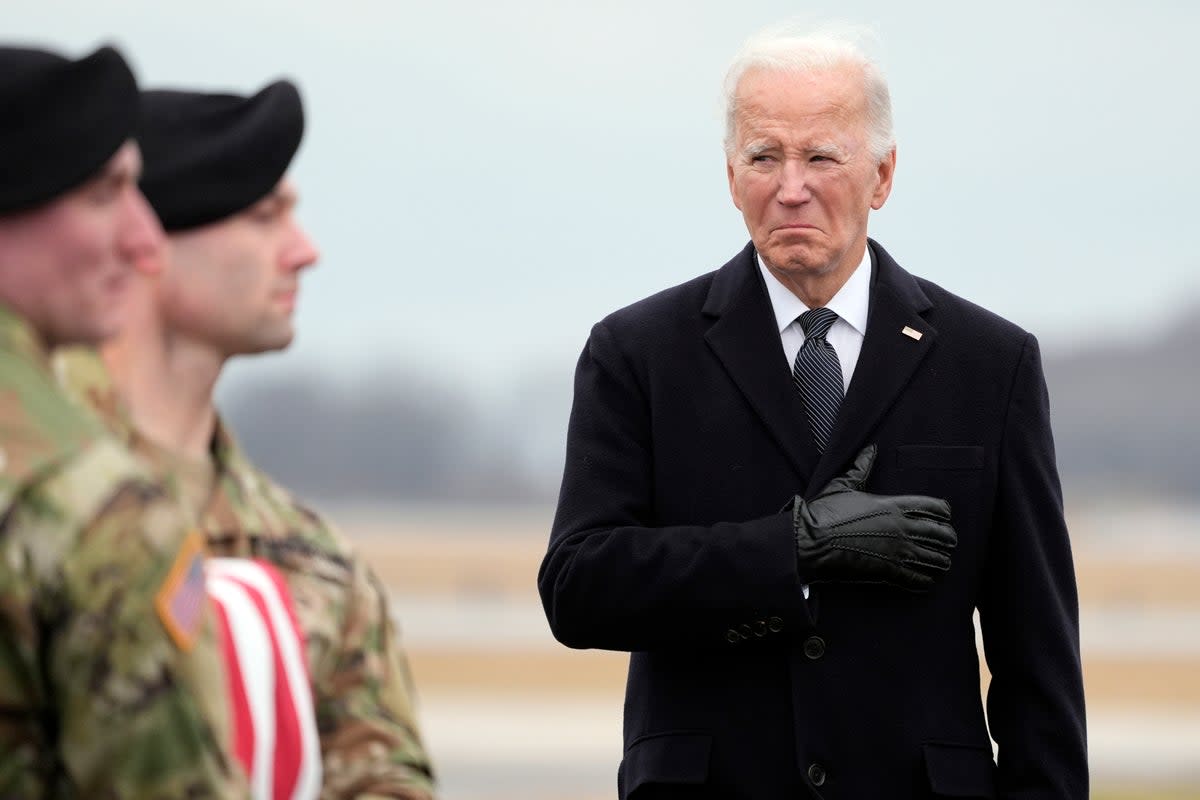
- Oops!Something went wrong.Please try again later.
The tidal wave of US strikes on Iran-backed militias in Iraq and Syria on Friday night is one of the most significant actions taken by the US against Iran’s proxies since the height of the Iraq War.
Washington said numerous aircraft, including long range B-1 bombers flown all the way from the States, pounded more than 85 targets linked to Iran’s revolutionary guards and its affiliates, strikes which may have killed as many as 40 people.
The sorties, which involved the firing of over 125 munitions, were in retaliation for last weekend’s attack by Iran-backed militants on US forces in Jordan. They will not be the last.
“This is the start of our response,” said US defense secretary Lloyd Austin.
More will come, President Joe Biden warned. “If you harm an American, we will respond,” the president added.
But how effective will these strikes be in deterring further attacks on US forces? And what do they mean for the already bubbling cauldron of tensions across the Middle East?
President Joe Biden is facing a seemingly impossible Gordian knot of a problem in the region: how to deter further strikes against US positions without triggering a region-wide Middle East war. All while tensions soar as Israel, backed by the US, continues its offensive against Hamas militants in Gaza.
Since Israel’s war with Hamas erupted in October the US military has come under attack at least 100 times in Iraq and Syria from a mix of rockets and kamikaze drones.
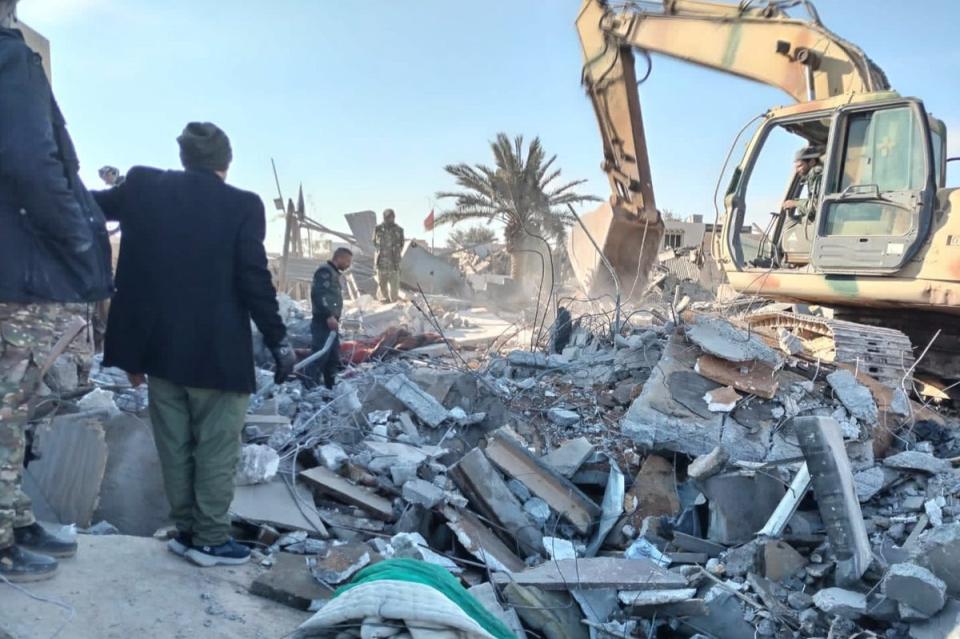
The deadliest was last weekend’s attacks which saw the arena extend to Jordan, where three American soldiers were killed and more than 50 injured.
This has been coupled with attacks on Red Sea shipping by Houthi rebels in Yemen, who say their attacks are in retaliation for Western support of Israel in its offensive.
The US military’s Central Command acknowledged on Saturday that they had engaged in another series of skirmishes with the rebels in the Red Sea and the Gulf of Aden.
The US also launched another series of strikes against Iran-linked targets in Yemen on Saturday, three US officials told Reuters. Yemeni media reported strikes in Al-Hudaydah and the capital Sana’a. The US and the UK’s joint bombing of Houthi positions in Yemen clearly have not deterred the rebel group.
The first part of the knot is Mr Biden facing increasing criticism back home.
Friday night’s strikes were the largest action taken in years against Iran’s allies in Syria and Iraq but – according to experts, were by no means the heaviest response the US could have chosen to make.
Republican senators were quick to pick this up, with Roger Wicker, a ranking member of the armed services committee, saying the sorties were too little too late as a response to the slaughter in Jordan.
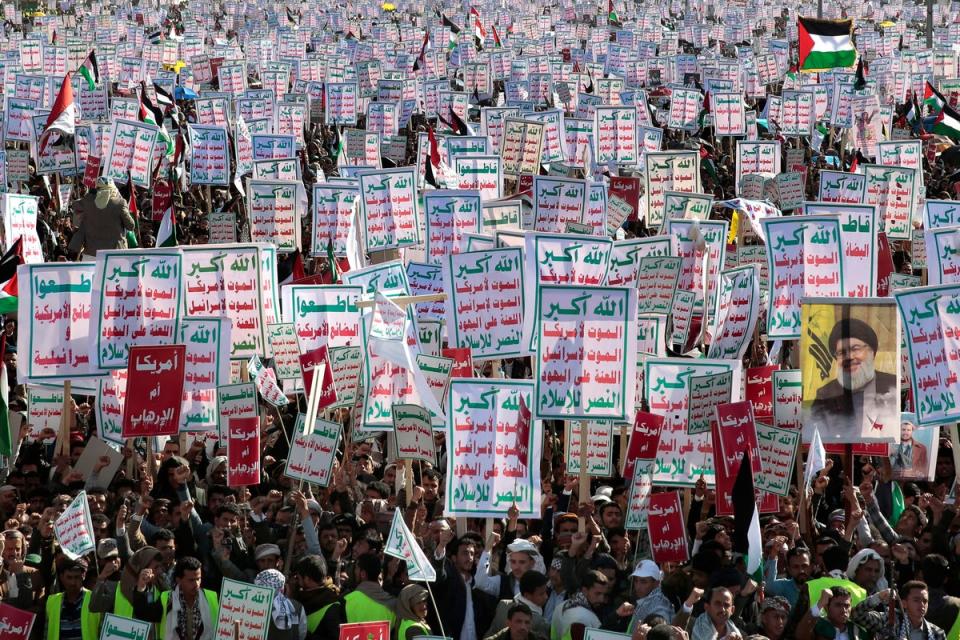
Charles Lister, a regional expert at the Middle East Institute in Washington DC, said it did not appear that the US went after “high value targets”, focusing instead on command and control and logistics hubs and drone stocks.
There are also reports that the US forewarned Baghdad, which in turn forewarned Iranian officials, meaning senior operatives were moved to safer positions.
So it is unclear whether the strikes will really do much to disable militia capabilities to launch further attacks on US positions or do much to deter them from trying again.
On Saturday, just hours after the wave of US strikes, Islamic Resistance in Iraq militants claimed that they had struck the al-Harir airbase hosting US forces in northern Iraq.
It is still unclear what exactly happened, with security sources telling Reuters no attack on al-Harir was detected. But it was at least an indication that some of Iran’s proxies in the region do not want to be seen to be backing down.
Experts say, meanwhile, it is near impossible for the US administration to degrade the ability of militias to hit US targets without deploying a level of strikes that would probably trigger a devastating full-blown war in the region.
Daniel DePetris, a fellow at the Defence Priorities think tank, said previous and current airstrikes since the Gaza war started have failed “to deter much of anything”.
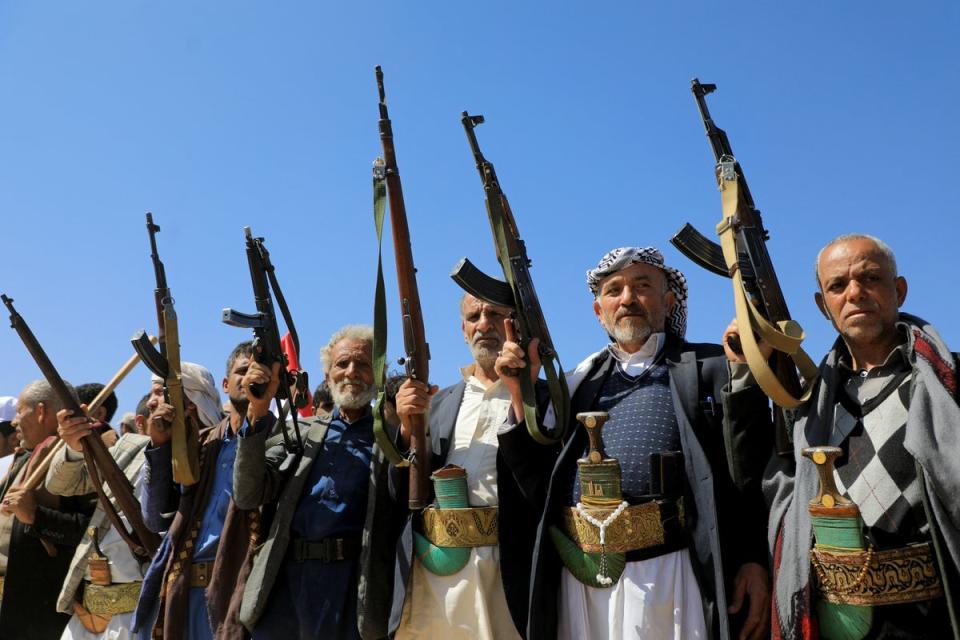
The problem is the “inherent difficulties” of influencing non-state actors like the Houthi rebels or Iran-back armed groups, “who don’t have to worry about defending territory, regime preservation, or maintaining a favourable balance of power”, he wrote on Saturday.
“For the militias in Iraq and Syria, their years-long desire to expel US and foreign forces from both countries is unlikely to change regardless of how much firepower the US employs and may even strengthen after this round of strikes.”
The military action might go some way to relieve some domestic political pressure as the US president careers into election season but ultimately it will not achieve the desired outcome of neutralising the problems these militias represent, he concluded.
Instead the concern is that the comparatively restrained strikes may only continue to stoke tensions at a dangerously volatile time, unless they are coupled with an effort to tackle the root cause: the conflict in Gaza.
“This is ultimately a suboptimal strategy,” wrote Trita Parsi, executive vice president of the Quincy Institute for Responsible Statecraft, a think tank that advocates diplomacy and military restraint.
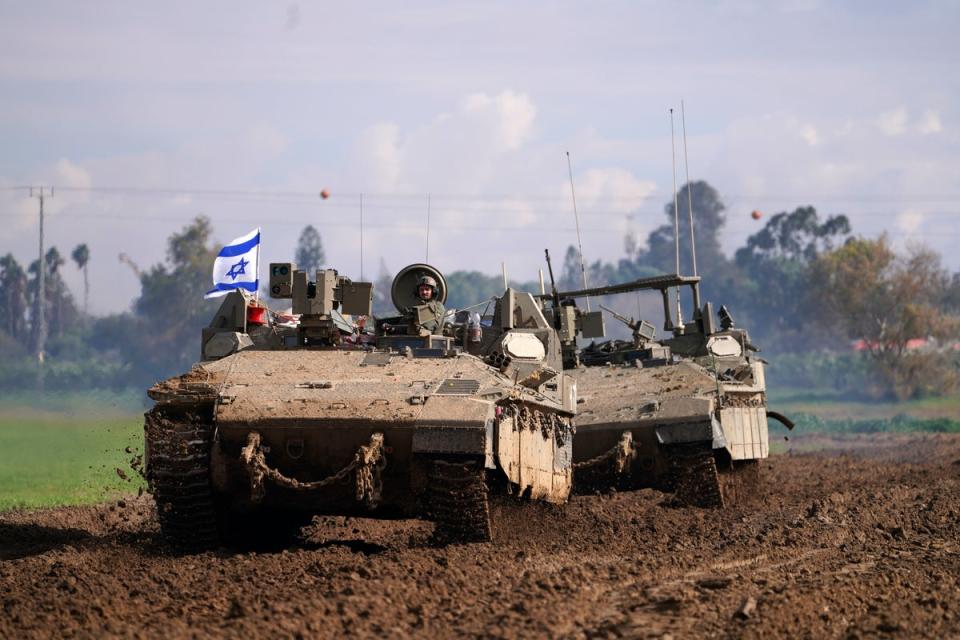
“Biden’s military action is likely to escalate matters in the region. Unless that is, it is coupled with a ceasefire in Gaza. There is no escaping this reality, nothing in the region is likely to de-escalate unless there is de-escalation in Gaza.”
Iraq, a US ally, is also upset. Iraq’s foreign ministry announced on Saturday it would summon the US embassy’s charge d’affaires (as the ambassador is outside of the country) to deliver a formal protest over US strikes which violated its sovereignty.
This could all escalate in the coming days.
There are concerns that Israel is going to push its devastating offensive in Gaza into the town of Rafah which borders Egypt and is now sheltering more than a million people who have fled to escape the worst of the fighting.
Israel’s ferocious bombardment of Gaza has already killed more then 27,000 people according to the health ministry in the Hamas-run strip.
Israeli defence minister Yoav Gallant said on Thursday his forces would push deeper south in the 42km-long strip, as the country continues its retaliation for Hamas’s 7 October attack on southern Israel where they took around 250 people hostage and killed hundreds of others.
The European Union expressed deep concern about any Israeli move on Rafah, as the situation there is “very dire”. The United Nations said the town is becoming a “pressure cooker of despair”.
Many fear such an offensive could push refugees into Egypt, undermining Israel’s peace agreement with the country, angering the US and maybe torpedoing slow-moving ceasefire talks which Qatar has been furiously trying to broker.
And it will probably trigger further backlash across the Middle East. It may force the US and even the UK into launching further strikes – and drag us all closer to a dangerous region-wide war that no one wants.

